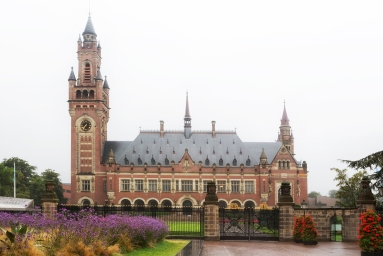The Story Of The Chinese Family That First
Fought To Desegregate Southern Schools
Racial politics in the Jim Crow South were more
complicated than you think.
11/04/2016 04:12 am ET
·
Rebecca Klein Education Editor, The Huffington Post
Decades before Brown v. Board of Education ― the
landmark 1954 Supreme Court case that found “separate
educational facilities are inherently unequal” ― a Chinese family
from rural Mississippi brought its own legal challenge to Southern school
segregation before the Supreme Court.
In 1924, grade school students Martha and Berda Lum
were barred from attending their local, all-white school because of their
status as people of color. The family sued the school in an unprecedented but
little-known lawsuit that made its way to the nation’s highest
court.
A new book, Water Tossing
Boulders: How a Family of Chinese Immigrants Led the First Fight to
Desegregate Schools in the Jim Crow South, documents the family’s struggle
for educational equality.
ASSOCIATED
PRESS
Thurgood Marshall, seen here in
1958, argued Brown v. Board of Education, the case that ended state-sanctioned
school segregation. Marshall went on to become the Supreme Court’s first black
justice.
Although the Lums sought to fight racism against
Asian-Americans and provide their daughters with access to a quality education,
their lawsuit was itself rooted in pronounced anti-black racism. The
Lum family brought the challenge because they didn’t want society to see their
daughters as being in the same category as black students, or force them
to attend the same institutions as black children.
The girls’ mother, Katherine, “knew that such a
classification would have instantly disenfranchised her family,” the book says.
“For Katherine to send her children to the colored school would be to yield to
the trustees, to agree with them that her daughters were not worthy of the
privileges afforded to whites.”
The case could have changed the course of history.
Instead, the Supreme Court unanimously ruled against the Lum family. They
ended up leaving the state.
The Huffington Post spoke with author Adrienne Berard
about how she unearthed this family’s unique history.
This case isn’t very well-known. How did you come
across it?
I wasn’t looking for it at all. It was a lucky
accident that I came across it. My family is from the Mississippi Delta and I
was there doing research ― I was interested in writing about my own family. I
went to the archives of Delta State University. When I was there, the archivist
had just come out of a meeting with a group interested in preserving the
Chinese heritage of the Mississippi Delta. After talking with her and
learning more about it, I wanted to change [the] focus of the book I thought I
was writing. I wanted to move away from my family but still tell the story of a
family. Generations had passed since the case, but people still talk about the
horror of it.
You spoke to members of the Lum family. Were they
interested in telling this story?
They were excited to meet me and excited to learn more
about their history. They were also pretty guarded, and rightly so. It wasn’t a
victory. They lost the case, and because they lost that case, it created a
precedent that was detrimental to the Chinese-American South as a whole. It’s
not like they were pariahs by any means, but there is that stain of losing the
case.
Why do you think this case has been so overlooked by
history?
I think part of it is because it conflicts [with] what
we think we know about the South. We have a very strict narrative of what the
South is, and to add a third race into what has been described as a binary
racial society really complicates the history. I’m not surprised I didn’t know
anything about it and that most people don’t know anything about it. In order
to explain those dynamics, you have to grapple with a lot of history and talk
about the layers that go into the racial discrimination of the South.
Had the ruling in this case gone differently, how
could that have affected the history of school desegregation in the South?
It is interesting because so much of this case is so
wholly racist. There were racists on both sides ― the plaintiffs and the defense,
the school board and the state of Mississippi and the U.S. Supreme Court. Even
the appeal, everything along the way has all these layers of racism.
Had the court favored the Lum family, it would have
been a dent in the hard wall of racism throughout the South. Instead, they made
that wall stronger. Had they said “We’re willing to blur this line for this
ethnic group,” then maybe another ethnic group would have come along and said
“Maybe you should blur this line for us.” Maybe African-Americans would have
come along and said “If all these groups can attend these schools, why
shouldn’t we?”
Hindsight is 20/20, so I have no idea. But had it not
been unanimous and only one justice written a dissent, that could have been
huge. Had one person in the justice system somehow ruled in favor of this
family, it could have set a precedent. They didn’t necessarily have to win to
make a difference.
This interview has been condensed and edited for
clarity.
______
Rebecca Klein covers the challenges faced in school discipline,
school segregation and the achievement gap in K-12 education. In particular,
she is drilling down into the programs and innovations that are trying to solve
these problems. Tips? Email: Rebecca.Klein@huffingtonpost.com.
Copyright © 2016 TheHuffingtonPost.com,
Inc. "The Huffington Post" is a registered trademark of
TheHuffingtonPost.com, Inc. All rights reserved.
Part of HuffPost • HPMG News


